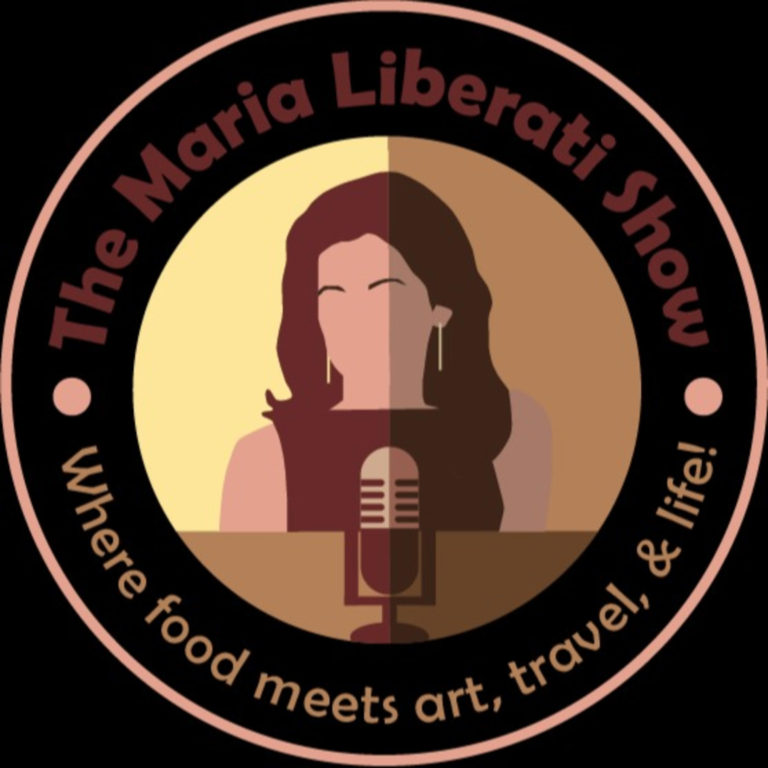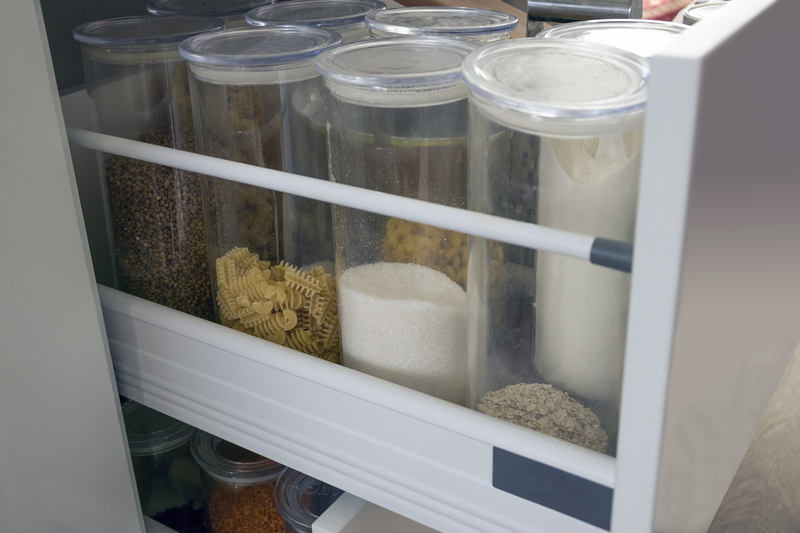copyright 2021 Art of Living, Prima Media, Inc.
Regardless of whether you own a small traditional kitchen with limited counter and cabinet space or a massive new build kitchen, it’s easy to accidentally run out of space and need some reorganization. How exactly is everything supposed to fit? Without hurting either your back or your pocketbook, what are some of the best ways to better organize your kitchen? Here are a few tips.
Store Items in a Pantry
Even things like cereals should be stored in sealable containers. This is to prevent both pests like pantry moths or weevils, but also in case of accidental temptation to rodents. There are many options available, but it is best first to measure your cabinet and determine height and width needs. Don’t be afraid of looking “outside of the box” for your organizational tools. If you bought snacks that came in screw-top containers, and later store spaghetti, you got matching, sturdy, clear containers for free! Heavy-duty plastic pitchers with sealing lids make great cereal containers, as they’re already sized for cabinets, and have handles that make pouring simple for small hands.
Use Drawer Dividers
Keep that mess corralled with drawer dividers. This not only prevents you from buying three containers of cinnamon but also keeps smaller items visible, so you know what seasoning packets you need. Reaching into a drawer for a spoon but coming back with a steak knife could be a painful lesson, so make sure you organize your kitchen tools accordingly. This helps make sure that lesser-used backs of drawers can hold items with no more stuck drawers from jammed spatulas! You can make your own dividers from cardboard or plastic corrugated “poster board” materials, but many options are already on the market and ready to use.
Build New Cabinets
This might seem like a drastic solution, but in the smallest kitchens, having optimized cabinet space is critical. Having cabinets that reach the ceiling is great for storage. Especially useful is reworking the formerly useless space on top of refrigerators, and deep in cabinetry, where clutter likes to gather. Clearing clutter can help you get more peace of mind in your kitchen, regardless of its size. Duplicates of items you don’t use can be jettisoned, and things you don’t use often can be stored away from the kitchen area. It’s ok for the turkey roaster to live under a bed if you only need it three times a year.
Use Hanging Racks
For things that are heavy, but have handles, like pots and pans, having a hanging rack might be a good option in your home. Some prefer a traditional style hanging rack if they have high ceilings, whereas a large rack hangs centrally in the kitchen. Others, however, prefer a modular option, where flat hanging storage is offered on a wall. One simple option is to use a pegboard, where pans can be placed on hooks, and where larger pegs can be used to house small shelves for open storage display if desired. If you wanted a good excuse to buy that lovely little enameled cast iron pot, this might be your best bet!
Look for Alternative Storage
As mentioned before, kitchen storage doesn’t have to only be in the kitchen, if it’s not often used. But, also, kitchen storage doesn’t need to LOOK like standard kitchen storage! If you wish you had a cabinet in a space, but a hutch, a chest of drawers, or other storage fits, it will work! Spices can be beautifully and safely housed in drawers of all types, and kitchen islands and cabinetry are only modified and built-in versions of what your ancestors had access to. Fun storage can brighten up an area and make it whimsical.
Metal Shelving
If you like baking and other implements in easy reach and view, a metal shelving system might be a good bet for your space. This sort of shelving can also give a modern look to a room or even “increase” kitchen space by continuing storage into the table area in apartments where other storage might not be available. With nice-looking and exceptionally sturdy shelving available for under seventy dollars, even shorter spaces can have the options to house cooking implements. This can give an urban design element to a modern kitchen, and offer pantry shelving where other options might not exist, as well.
Too Deep Cabinets
Cabinets which are too deep are common in older homes, leading to unused spaces in corners and hidden areas. Where space is at a premium, the option to add rolling drawers, whether built-in or modified, is a good choice. Likewise, organizing for specific efficiency goals might involve not lifting (or digging in to find) from deep lower cabinets. Make sure that your kitchen works well for you, and that you organize with your back in mind!
Toss, Toss, Toss
Your number one best organizing tip, regardless of which organizational forum or space, is to toss out clutter. If you do not use it, need it, or love it, it needs to not be clogging up your space. This can be difficult if there is what is called “aspirational clutter,” those things which you intend to use again someday or want to learn eventually, or that were unused gifts. If a gift came with thirty years of storage and guilt, it’s not a gift- it’s a burden. Get rid of it. If you no longer can do a project, it’s ok to let go.
Regardless of the size of the kitchen, yours can be organized to work for you. Remember: just because your parents kept the pots to the right of the sink, this doesn’t mean that’s where they are “supposed” to go. Your kitchen must work for your needs individually, and for your family collectively. Get rid of things you do not use or love and let them go. Store safely, and enjoy your beautiful kitchen, maximized for your needs!
Read this next: 3 More Ways to Improve the Energy Efficiency of Your Kitchen
Join Me-May 8th- Join me for a Tuscan Picnic Mother;s Day event! sign up on eventbrite.com
**Jpin Me-May 28th join me for Strawberries and Cream virtual cooking event. register on eventbrite.com
Tune in to The Maria Liberati Show Podcast for more information on designing your kitchen as we celebrate national kitche nremodeling month

Foodie, traveler, and art enthusiast? Immerse yourself in “The Maria Liberati Show,” where Gourmand World award-winning author/ chef Maria Liberati explores the world through the lens of food, culture, and art.
Join Maria as she engages fascinating guests in lively conversations about:**
Culinary experiences and traditions from around the globe.
The connections between food, wine, art, and literature.
The unique stories and inspirations behind people’s food journeys.
What food means to them personally and culturally. Learn how food connects us all!
This week, Maria is joined by Hannah Massarat, a rug expert, who discusses redecorating for Spring and Summer! Dr. Corrine Erickson also joins the show, talking about skincare tips for the rest of 2025!
This week, Maria is joined by Ashley Scheuring, a returning guest and money saving expert, who shares tips on how to do Mother's Day on a budget! Also joining the show is Edward Perotti a celebrity event planner, who offers exciting tips on entertaining!
Enter, ”The Maria Liberati Show,” based on her travels, as well as her Gourmand World Award-winning book series, ”The Basic Art of Italian Cooking,” and ”The Basic Art of…” Find out more on https://www.marialiberati.com
—–
music: ”First Day of Spring” by David Hilowitz – available via Creative Commons Attribution-ShareAlike 4.0 https://creativecommns.org/licenses/by-sa/




Pingback: Why Native Plants Should Have a Place in Your Yard - The Basic Art of Italian Cooking
I don’t even know how I ended up here, but I thought this post was great. I don’t know who you are but certainly you are going to a famous blogger if you aren’t already 😉 Cheers!